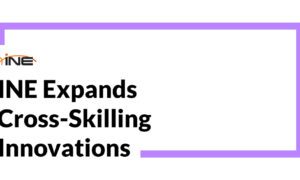ChatGPT Writing Prompts for ChatGPT Sounds Stupid Until You Make $200K Doing It
Kevin was getting garbage from ChatGPT. Generic outputs. Endless iterations. Then he discovered meta-prompting: ChatGPT software writing its own prompts. Now those prompts generate $200K in client work.
The stupidity of his original prompts hit him at 2 AM. Kevin was on iteration #34 of “write a sales page for my client” and ChatGPT kept producing WikiHow-level trash. His client was pissed. The deadline was tomorrow.
In desperation, Kevin tried something insane: “ChatGPT, write me a better prompt for creating sales pages.”
What came back changed his business forever. ChatGPT wrote a prompt so detailed, so specific, that the next output was perfect. The client paid $10K and asked for more.
Now Kevin doesn’t write prompts. He describes outcomes and ChatGPT writes prompts that achieve them. Those meta-prompts have generated $200K in six months.
The Stupidity of Human Prompting
Kevin’s original prompts:
- “Write a sales page”
- “Make it compelling”
- “Add urgency”
- “Make it convert better”
- “More emotional”
ChatGPT’s response: Generic garbage that could sell anything or nothing.
The problem: Humans write prompts like they’re ordering coffee. Vague, assumptive, lazy.
ChatGPT needs prompts like it’s performing surgery. Specific, detailed, structured.
The Meta-Prompt Discovery
Kevin’s desperate attempt: “Create a detailed prompt that will generate a high-converting sales page for a B2B SaaS product.”
ChatGPT’s response: ROLE: You are a direct response copywriter with 15 years experience writing for B2B SaaS companies. You’ve generated over $50M in tracked revenue.
CONTEXT: Writing sales page for [product name], a [specific solution] that helps [target audience] achieve [specific outcome] without [main pain point].
AUDIENCE PSYCHOLOGY:
- Primary fear: [specific fear]
- Primary desire: [specific want]
- Objections: [list 5]
- Trigger words: [industry specific]
STRUCTURE REQUIRED:
- Pattern interrupt headline (not benefit-driven)
- Problem amplification (3 specific scenarios)
- Agitate with cost of inaction
- Solution introduction (mechanism focus)
- Benefit stack (business outcomes only)
- Social proof (logos and metrics)
- Feature walkthrough (screenshots)
- ROI calculator section
- Objection handling (FAQ format)
- Risk reversal (pilot program)
- Urgency (legitimate reason)
- Three-tier pricing
- PS that handles final objection
VOICE AND TONE:
- Professional but conversational
- Data-driven not hypey
- Peer-to-peer not guru
- Solution-focused not problem-obsessed
CONSTRAINTS:
- No superlatives
- B2B language only
- 2,500-3,000 words
- Mobile-optimized formatting
- Include 3 customer quotes
SUCCESS METRICS:
- 5%+ conversion rate for qualified traffic
- 45%+ scroll depth
- 3+ minutes average time on page
This prompt generated a sales page that converted at 8.7%.
The Recursive Breakthrough
Kevin went deeper: “Create a prompt that generates prompts for any type of business content.”
ChatGPT created a prompt generator: I need a prompt for [content type] that achieves [specific goal].
Generate a comprehensive prompt including:
- Specific role/expertise needed
- Detailed context and constraints
- Target audience psychology
- Required structure/format
- Voice and tone guidelines
- Success metrics
- Examples if helpful
Make the prompt so specific that outputs are consistently excellent.
This meta-meta-prompt now generates all of Kevin’s prompts.
The $200K Prompt Library
Kevin built a library of meta-prompts:
Sales Pages: 12 variations by industry Email Campaigns: 23 templates by goal Blog Posts: 45 frameworks by topic Social Media: 150+ platform-specific Video Scripts: 20 formats Webinar Slides: 15 structures Case Studies: 10 templates White Papers: 8 frameworks
Each prompt was:
- Generated by ChatGPT
- Tested on real projects
- Refined based on results
- Documented with examples
Clients pay $5-10K per project. Kevin spends 30 minutes.
The Client Work Revolution
Before meta-prompting:
- Sales page: 8 hours writing
- Blog post: 3 hours
- Email campaign: 5 hours
- Constant revisions
- Client frustration
After meta-prompting:
- Sales page: 30 minutes
- Blog post: 10 minutes
- Email campaign: 20 minutes
- First draft usually final
- Clients amazed
Kevin’s agency scaled from $8K/month to $35K/month in 90 days.
The Meta-Prompt Templates
For Sales Content: Create a prompt for [sales content type] that:
- Converts at [X]% minimum
- Speaks to [audience]
- Overcomes [specific objections]
- Uses [psychological triggers]
- Follows [specific framework]
For Educational Content: Generate a prompt for creating [educational content] that:
- Teaches [specific skill]
- For [audience level]
- In [format]
- With [examples/exercises]
- Achieving [learning outcome]
For Technical Documentation: Build a prompt for [documentation type] that:
- Explains [complex topic]
- For [technical level]
- Including [required sections]
- With [examples/code]
- Meeting [compliance needs]
The Competitive Advantage
Kevin’s competitors still write prompts manually:
- “Make it more engaging”
- “Add some statistics”
- “Improve the introduction”
Kevin uses meta-prompts:
- ChatGPT designs the perfect prompt
- Output is immediately usable
- Clients think he’s a genius
- 10x faster delivery
One competitor hired 3 writers. Kevin just improved his meta-prompts.
The Learning Curve
Week 1: “This is stupid, it won’t work” Week 2: “Holy shit, this is better” Week 3: “I’ll never write a prompt again” Month 2: “Charging double for half the work” Month 6: “$200K from robot-generated prompts”
Resource guide here shows the progression.
The Economic Reality
Traditional prompt writing:
- Time to good output: 2-3 hours
- Success rate: 30%
- Hourly effective rate: $25
Meta-prompting:
- Time to good output: 15 minutes
- Success rate: 85%
- Hourly effective rate: $400
Kevin makes more in a morning than he used to make in a week.
The Ultimate Meta-Prompt
Kevin’s master prompt that generates everything: You are an expert prompt engineer. Create a comprehensive, detailed prompt for:
Task: [specific deliverable needed] Goal: [measurable outcome] Audience: [who will consume this] Context: [relevant background] Success looks like: [specific metrics]
Your prompt should:
- Assign appropriate expertise/role
- Provide detailed context
- Specify exact structure needed
- Include constraints and requirements
- Define success criteria
- Be clear enough for consistent quality
Generate a prompt that will produce excellent results on first attempt.
<blockquote class=”twitter-tweet”><p lang=”en” dir=”ltr”>Steal this chatgpt cheatsheet for free😍<br><br>It’s time to grow with FREE stuff! <a href=”https://t.co/GfcRNryF7u”>pic.twitter.com/GfcRNryF7u</a></p>— Mohini Goyal (@Mohiniuni) <a href=”https://twitter.com/Mohiniuni/status/1960655371275788726?ref_src=twsrc%5Etfw”>August 27, 2025</a></blockquote> <script async src=”https://platform.twitter.com/widgets.js” charset=”utf-8″></script>
Stop Writing Prompts, Start Generating Them
Kevin went from struggling freelancer to $200K because he stopped trying to write better prompts and let ChatGPT write them instead.
The AI understands itself better than you understand it. Let it tell itself what to do.
Your competitors are still tweaking prompts manually. You could be generating perfect ones automatically.
The meta-prompters are taking all the high-paying work. Everyone else is still typing “make it better.”
The robots want to help. Let them write their own instructions.



































